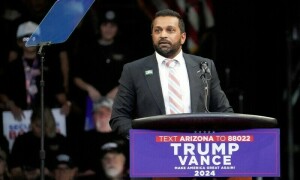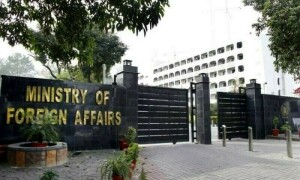
SOME in the literary world have argued about Bob Dylan winning the Nobel Prize for Literature, holding that he is a songwriter, or a lyricist, but not a poet and that the award should be reserved strictly for writers, which Dylan — we are assured — most definitely is not.
From my perspective as a practicing poet and critic of poetry, I believe there’s hardly anyone more deserving of the award today from a strictly literary point of view.
If Dylan’s writing doesn’t ascend to the level of the greatest poetry, then I don’t know what does. I am not cutting him any slack here. I am comparing his poetry, especially in his peak period from 1962-1966, with the best poetry written in the 20th century, from T.S. Eliot to Sylvia Plath. Dylan’s poetry will stand the test of time, and it should be remembered that Allen Ginsberg, the doyen of the Beat poets, was more influenced by Dylan than the other way around.
Critics of the award feel that literature is limited to the solitary reading of words on the page. Of course, this excludes drama as literature, but it also excludes other forms of writing — criticism, philosophy, the social sciences, scientific writing — that ought to be recognised as literature, if the writing ascends to that level. For example, Friedrich Nietzsche, Sigmund Freud, and Ludwig Wittgenstein all created works of abiding value as literature, aside from their other functions.
Dylan has affected almost all literary writers of the past half century, whether or not they have directly encountered him, because his poetic consciousness has seeped deeply into our moral judgement.
The Nobel Prize committee has made a most timely intervention in the question of just what is literature, a question all the more important as humanism recedes around the world in a dark moment of populist authoritarian uprisings, from India to France to the United States. This is a tendency that literature has the unique capability to resist. And Dylan offers an almost unparalleled corpus of poetry, as vital as anything in world literature, to compensate for the rising darkness.
If we consider the best of his poem-songs, they seem as relevant to our condition today as they were half a century ago. This is so because the poetry is derived from a gift of prophecy. Of course, the basic techniques of poetry — rhyme, allusion, assonance, metaphor, and all the rest — are found in abundance, but beyond that there is an intuitive understanding of humanity’s tragic situation that belies the facile label of “protest singer” his fans have sometimes pinned him with.
Each of Dylan’s brilliant poems stems from a flash of prophecy, so that the political analysis never becomes trite, the appeal to our better angels never becomes servile, the symbols never lose independence, and the condemnation of crimes against humanity never sugarcoats the complicity that touches everyone.
Perhaps the greatest protest song ever made, Masters of War, engages in biblical curse, sparing no sympathy for those who cause destruction. It works even now as a timely poem because Dylan consistently uses direct language that doesn’t hide his sorrow. He can then pass lasting judgement, with such lines as “Like Judas of old/You like and deceive/A world war can be won/You want me to believe/But I see through your eyes.” It is a poem of consistent end-stopped lines, with such final words as “war,” “guns,” “planes, “bombs,” “walls,” “desks,” “know,” and “masks” in the first stanza, refusing to allow us to hide behind conventionalities.
To take another example, A hard rain’s a-gonna fall — which I think should be the anthem of the current decade just as it was around the time of the Cuban missile crisis — Dylan adopts a well-known Scottish ballad, with its refrain of “my blue-eyed son” and “my darling young one” to pose the saddest set of questions I know about the desolation of the natural landscape everywhere. The lines are longer than in Masters of war, but the power of the cumulative repetition comes from his gift of prophecy, which lets him observe at the deepest level — “seven sad forests,” or a “dozen dead oceans” — the reality of humankind’s murder of nature.
I will mention one personal poem-song, the incomparably seductive To Ramona, where he desires the beloved to be self-sufficient and overcome the world: “The pangs of your sadness/Shall pass as your senses will rise.” But in the end, there’s nothing much he can do, though he wants to save her from the trap of conformity: “From fixtures and forces and friends/Your sorrow does stem/That hype you and type you/Making you feel/That you must be exactly like them.” We feel simultaneously the sense of love consummated and unconsummated.
Of course, Dylan’s poetry on the page is vastly enhanced by the use of his incomparable voice, as in the way he channels dry judgement in Masters of war, or remains buoyant despite the message of desolation in A hard rain’s a-gonna fall, or trills the ends of lines in To Ramona. His voice is the most honest one of the late 20th century.
Dylan, more than any other poet I know, erased the line between the personal and the political. No personal observation of his is limited as such, and it is also probably the reason why he didn’t feel a traitor to the left when he no longer wanted to sing protest songs.
Dylan lent intellectual sophistication to a rock and roll tradition that had become moribund by the time he came on, and likewise revived the blues and folk traditions toward linguistic and emotional completion. He has affected almost all literary writers of the past half century, whether or not they have directly encountered him, because his poetic consciousness has seeped deeply into our moral judgement.
Oh, and he is the least narcissistic poet of our time. For that alone he deserves the highest recognition, and the biggest possible surge of youthful listeners.
Anis Shivani is the author of Karachi Raj and Soraya: Sonnets. His next book of criticism, Literary Writing in the 21st Century: Conversations, will appear this year.
Published in Dawn, Books & Authors, January 29th, 2017














































Dear visitor, the comments section is undergoing an overhaul and will return soon.